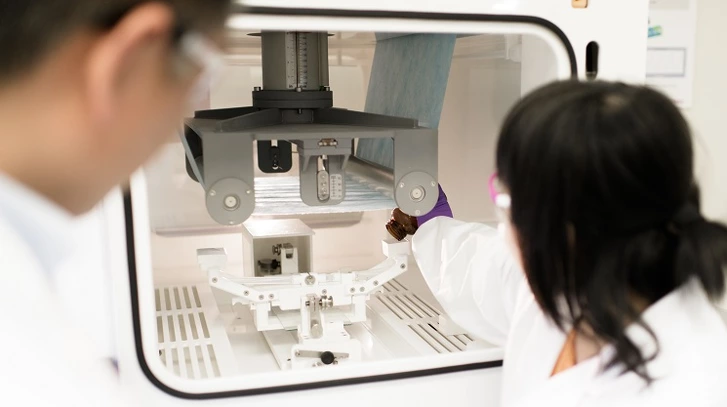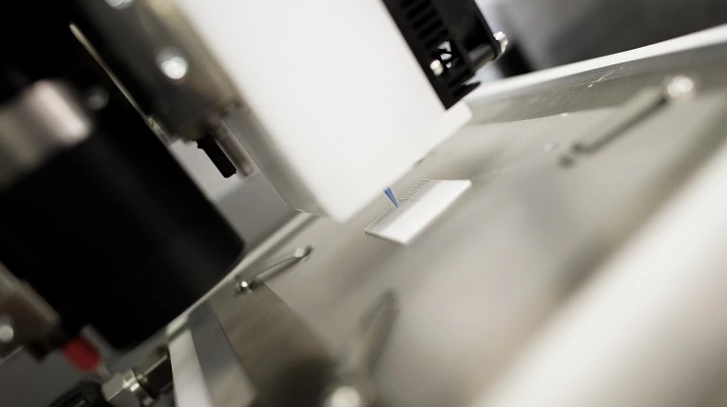
Patient-friendly
Custom-made implants
To serve the attractive growth market of medical devices even more effectively, Evonik has built up extensive competencies in the area of orthopedic surgery in its Medical Devices Project House. The project house which ran for a limited period of time, will now be turned into a permanent competence center.
People are not only living longer, but also want to stay healthy and active well into their older years. This in turn is leading to increased demand for medical devices. Specialty polymers such as Evonik’s RESOMER® and VESTAKEEP® already play an important role as implant materials. To serve this attractive growth market even more effectively, over the past four years Evonik has built up extensive competencies in the area of orthopedic surgery in its Medical Devices Project House – in the United States, the largest single market for medical devices. The project house in Birmingham (Alabama), which ran for a limited period of time, will be turned into a permanent competence center as of April 1, 2018.
“We want to position Evonik as a leading material supplier and development partner when it comes to patient-friendly medical device solutions,” says Harald Schwager, deputy chairman of the Evonik Executive Board who is responsible for the Group's innovation affairs. “The project house has advanced our knowledge a great deal in this field.”
Since 2014, more than 20 highly qualified scientists have been working on the enhancement of existing materials and application technologies in Birmingham. In addition to established technologies such as precision extrusion and injection molding, the project house utilizes advanced processing technologies such as 3D printing and electrospinning to rapidly evaluate material properties and create prototypes.
Evonik will integrate the activities of the project house, which was so far part of its strategic innovation unit Creavis, into a competence center operated by its Health Care Business Line.


“The knowhow and competencies developed over the course of the last four years will enable us to become a leading provider of innovative biomaterial and application technology solutions and to better support our medical device customers in their innovation journey” says Jean-Luc Herbeaux, SVP and Head of the Health Care Business Line at Evonik. The competence center complements the other established application laboratories in Shanghai, China and Darmstadt, Germany that support customer projects across key international markets. The technical equipment allows for manufacturing and testing prototypes made from new materials – not just in extrusion and injection molding processes, but also in 3D printing.
Herbeaux considers 3D printing an obvious future development in medical devices: “We want to support the industry with their need for printable medical grade polymers so patients with e.g. cranial or facial injuries can receive customized implants,” he says. “So far, surgeons can only choose from a selection of standard sizes.”
The Health Care Business Line is a leading provider of biodegradable polymers based on poly-lactic-glycolic acid, which are marketed under the brand name RESOMER®. Medical device manufacturers use the material to produce items such as screws, pins and small plates for the treatment of bone fractures and tendon ruptures, but also biodegradable stents. The body absorbs the implants after a specified period of time, which means that no follow-up surgery is required to remove them. Stents lower the risk of recurring vascular occlusion.
The High Performance Polymers Business Line will be the second key sponsor of the competence center in the Evonik Group. Its biocompatible VESTAKEEP® polyether ether ketone is used for spine, mouth, jaw or skull implants that are designed to remain in the body and replace metal implants.



